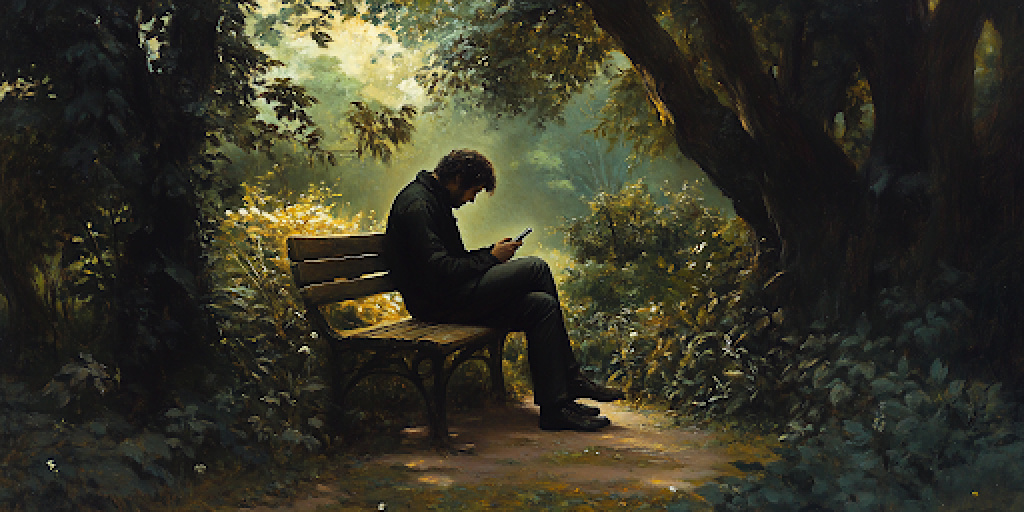During a visit to New York in 1832, Joseph Smith marveled at the “truly great and wonderful” buildings he encountered in “the most splendid part of the city.” In one of the few letters he wrote in his own hand, (“of his outgoing correspondence only about two dozen extant letters bear the marks of his own pen,”) without the filter of a scribe, we glimpse something of the largeness of soul of an everyday prophet wowed by the wonders of his own time. To his wife, Emma, he wrote,
Can the great God of all the Earth, maker of all things magnificent and splendid, be displeased with man for all these great inventions saught out by them? My answer is no, it cannot be, seeing these works are calculated to mak[e] men comfortable, wise, and happy. Therefore, not for the works can the Lord be displeased. Only aganst man is the anger of the Lord kindled because they Give him not the Glory.
Some in our own day, such as the famed atheist Richard Dawkins, express an “abstract gratitude” to be alive to appreciate the wonders of the universe and the beauties of the earth. But this general giving of thanks is wholly inadequate and utterly meaningless. One of the beauties of gratitude is its requisite specificity. Each blessing we have comes from somewhere and, even more importantly, from someone. People of faith readily recognize God as the giver and enabler of their gifts. In pointing us to God in the letter above, Joseph calls to my mind one of two great commandments (to love God) outlined in the Hebrew Bible and the Christian New Testament.
The increased time of self-reflection enabled by Covid-19 has helped me see that we should take Joseph’s impromptu mini-sermon on gratitude to God one step further. A few days into self-isolation, I purchased a collection of essays called What Are People For? These come from the American writer Wendell Berry. Forget the essays, though. The four simple words of the title alone somehow command my attention every day as I work at my desk in my basement. This book title demands an answer of me: “Sammy, do you know what people are for?”
Like the ground I walk on or the oxygen I breathe, it is always there. I notice it only in its absence.
Yes, we recognize God’s generous hand in the many “great inventions” of our own day that infuse our lives with comfort, wisdom, and happiness. But as important as it is, gratitude to God alone is insufficient. There are, of course, two great commandments that Jesus spoke of. We are to love God and love our neighbor. Thus, we must thank God and our neighbor. When we see that the blessings we enjoy come at a cost—a cost paid by many other specific someones—we realize just how important that second commandment can be.
This and other observations over the past four months show me how deeply reliant I and the rest of us are not just on things and systems and organizations, but also and especially on people.
So many people make possible my soft and cushy first-world life. This has always been true. Covid-19 has simply made it more obvious—while also clarifying the cost of my comforts. The societal infrastructure of my home state of Utah provides a support and stability that I too rarely consider. Like the ground I walk on or the oxygen I breathe, it is always there. I notice it only in its absence.
At grocery stores, I enjoy a bounty that sometimes makes my head spin. Truck drivers, forklift operators, shelf stockers, butchers, bakers, cashiers, the teenagers rounding up shopping carts and sanitizing them after each use—each item we enjoy from a grocery store has an impressive genealogy.
My wife and I, along with our three children, have not been without other wants. These come to us thanks to the men and women staffing the warehouses and delivery trucks from Amazon, UPS, Fed Ex, and the United States Postal Service.
On those days when we are too lazy to cook, we are blessed by takeout from our favorite Thai and Indian restaurants.
To help us obtain faster and more reliable internet, several workers recently dug a trench in our yard on a hot afternoon to pipe in a fiber internet connection to our home.
May we be more deliberate in our expression of gratitude both for and to these important souls.
So many faces, each with a name. In addition to making my life easier and full of more possibility, each of these persons—my brothers and sisters in the grand family of God—cannot work from home so that I can. This blessing has infused a holistic balance into life that will be sad to part with.
Just as Joseph said, we rightly give God the glory for these blessings. But let me and you not stop there. May we never forget the second great commandment and what our comforts cost our fellow man and woman—especially those who are new to our country and community and who are engaged in mostly low-wage labor that tends to blend in to the background of everyday life. An abstract gratitude is insufficient when we know that real people with their own families and joys and pains help make our lives so pleasant and good.
May we be more deliberate in our expression of gratitude both for and to these important souls. For example, during the Christmas season, my wife and her sisters sometimes leave a box of treats on the porch as a boon to the busy workers delivering high volumes of packages. A note in the box thanks these overworked men and women for making our lives easier.
People need to know that they matter—not because it sounds nice to do so, but because they really do! “Being unwanted [and, we might add, unnoticed and unseen] … is the worst disease that any human being can ever experience,” Mother Teresa taught. Likewise, in his letters and papers from prison, German martyr Dietrich Bonhoeffer wrote that “there is hardly anything that can make one happier than to feel that one counts for something with other people. … God uses us in his dealings with others.”
“Let me tell you why you are here,” Jesus told his first followers, according to one Bible translation. “You’re here to be salt-seasoning that brings out the God-flavors of this earth. If you lose your saltiness, how will people taste godliness? You’ve lost your usefulness and will end up in the garbage.”
That is a message that has aged well over 2,000 years. Part of being the salt-seasoning that the Christ calls His followers to be is to give God the glory. Of equal importance is to recognize our daily reliance on the intricate web of relationships in which He has placed us—and to voice our appreciation to the specific people who make our comforts possible.

















